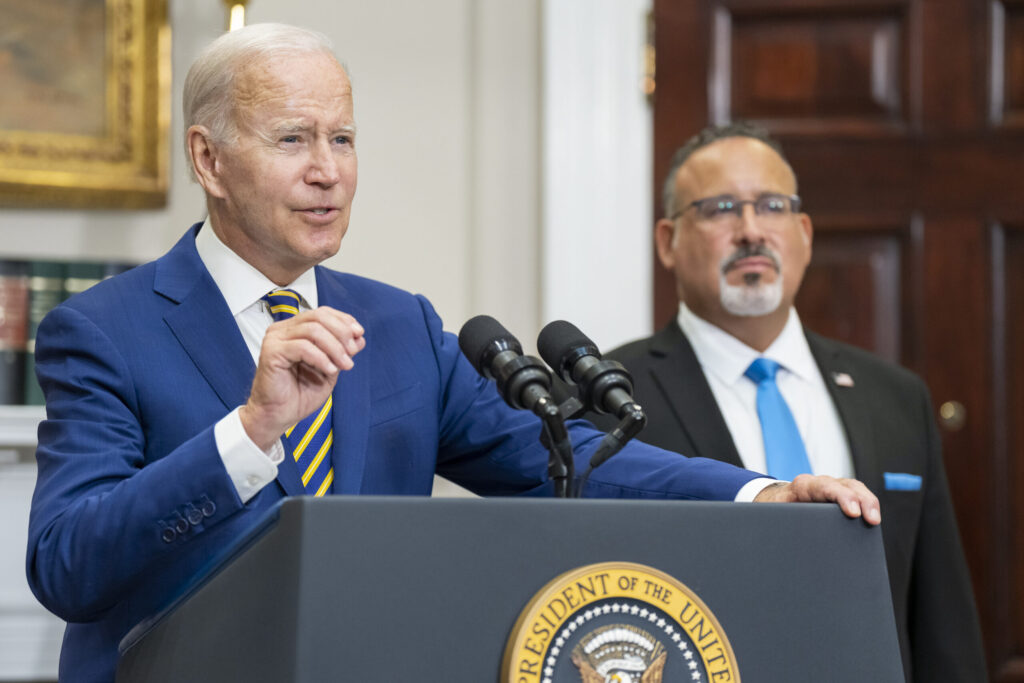
Senators call on President Biden to take national approach to passenger rail

Members of the Senate are stepping up to the plate to support passenger rail service across the country. Two sign-on letters from Senator Ted Cruz (R-Texas), the new ranking member of the Senate Committee on Commerce, Science, and Transportation, urge the administration and federal agencies to do right by the national network.

Senator Roger Wicker (R-Miss.), a long-time champion of passenger rail, announced last year that he was stepping down as ranking member of the Senate Committee on Commerce, Science, and Transportation. Some rail advocates were concerned that his replacement, Senator Ted Cruz (R-Texas), would not be interested in picking up the mantle on rail.
But Senator Cruz’s first moves as ranking member—two sign-on letters advocating for Amtrak’s national network—are very encouraging. One letter calls for better representation on the Amtrak Board for the national system, while the other calls for distributing rail infrastructure dollars more equitably between the Northeast Corridor and the rest of the nation. Let’s dig in.
Letter 1: Diversify the Amtrak Board
In his first letter, Cruz points out that five of President Biden’s six nominees to the Amtrak Board of Directors are from the eight states that constitute the Northeast Corridor (NEC). He correctly argues that this violates the language laid out in the Infrastructure Investment and Jobs Act (IIJA), which requires a geographically diverse board, not to mention being patently unfair to the other 42 states in the Union.
Cruz’s request to the president was simple: “withdraw one of your Democratic nominees from the Northeast Corridor and replace that person with a nominee from outside the Northeast Corridor.” Six other senators signed onto this letter: Todd Young (R-IN), Roger F. Wicker (R-MS), Jerry Moran (R- KS), Marsha Blackburn (R-TN), Eric Schmitt (R-MO), and JD Vance (R-OH).
Senator Jon Tester (D-Mont.) recently went even further, sending the president back to the drawing board by personally blocking all of his nominees. All told, the Senate’s message to President Biden is clear: the Amtrak Board needs to represent the whole country, not just the Northeast Corridor. (Frankly, we are surprised Sen. Cruz doesn’t have partnership from other Democrats from outside the Northeast.)
Our take
Transportation for America has long maintained that for the Amtrak Board to represent the whole country, it must have members from across the whole country. T4A’s Chairman John Robert Smith served as chairman of the Amtrak Board after serving 16 years as the mayor of Meridian, Mississippi. His experience of riding Amtrak trains outside the Northeast Corridor as well as the then-new Acela service, provided him a valuable perspective that most of President Biden’s current nominees lack. For this reason, we agree wholeheartedly with Sen. Cruz’s letter.
But the letter leaves out some key issues. While those who signed this letter are right about the problem with the president’s slate of nominees, they omit the role the Senate GOP has to play. Senate Republican leadership is responsible for deciding which Republicans the president will nominate, since the Amtrak Board consists of an equal number of Republicans and Democrats. Yet the GOP has put forth only one of their four nominees and the one is from the Northeast.
In order to get a full picture of this prospective Amtrak Board, we need a full slate of nominees—Democrats and Republicans. It’s past time for Senate GOP leadership to put forward a geographically diverse slate of Amtrak Board nominees, and we would have liked to see this letter address that.
We nonetheless applaud the Senators’ efforts as well as Senator Cruz’s leadership on this issue, and will support him in holding the Biden administration to the requirements in the IIJA. He is building on the work that Sen. Wicker and Sen. Cantwell (D-Wash.) have done to steer Amtrak toward a national vision for passenger rail.
Letter 2: Spread the Fed-State wealth
In his second letter Cruz, along with his fellow committee Republicans, writes that the Federal Railroad Administration (FRA) has inappropriately prioritized the NEC and barred the rest of the country from key infrastructure dollars. His particular gripe is with FRA’s rollout of the Federal-State Partnership for Intercity Passenger Rail (Fed-State) program, a $43.5 billion competitive grant program that funds rail infrastructure improvements nationwide.
The IIJA states that at least 45 percent of Fed-State grants shall go to the 8 NEC states and at least 45 percent shall go to the 42 non-NEC states (the National Network). Those figures were amended in the Consolidated Appropriations Act of 2023 (the annual spending bill) to increase the maximum amount of Fed-State funding that FRA can allocate to the NEC to two-thirds of program dollars. Implicitly, that would lower the guaranteed amount of funding for the rest of the country to one third, but the law does not explicitly say that.
FRA chose to immediately use their new discretion to max out the possible funding for the NEC to two-thirds of this year’s Fed-State grants. In their notice of funding opportunity (NOFO) for the Fiscal Year (FY) 2023 round of Fed-State grant applications, they broke the National Network and NEC into two separate pools of funding.
This move ensured that the NEC would receive the maximum amount of funding allowed by law (two-thirds of program dollars, or $9 billion) and the National Network would receive the minimum amount (one third of program dollars, or $4.5 billion). Cruz and his fellow Commerce Committee Republicans argue that this move essentially deprives the National Network of $7 billion worth of Fed-State funding, using a legal loophole to evade the intended use of IIJA dollars.
Our take
Senator Cruz is spot on. This issue is actually fairly simple: FRA should use its discretion to equitably balance the needs of 8 states along NEC and the 42 states in the rest of the country. The 2023 spending bill did not specifically repeal the 45 percent guarantee to the non-NEC national system and, therefore, FRA should do everything they can to adhere to that law that was passed with bipartisan support. FRA should certainly not exercise its discretion in a way that violates the written—and unamended—text in the US Code.
This letter gets at an issue we’ve harped on before: the importance of a national approach to passenger rail. One of the reasons that support for Amtrak has been so bipartisan is that it serves the whole country. If Amtrak becomes a creature of the Northeast that doesn’t care about the other 42 states, it will quickly lose political support and likely funding.
FRA’s counterargument to Sen. Cruz’s point might be that the NEC has a pipeline of large, important projects ripe for Fed-State dollars, so it should receive funding commensurate with that pipeline. But that’s because the federally-funded Northeast Corridor Commission has had 15 years to plan and develop that pipeline. The rest of the National Network is only just beginning that process, with the creation of the Interstate Rail Compact program (IRC) and Corridor Identification and Development Program (CIDP) in the IIJA. They should not be punished for chronic federal underinvestment and lack of planning support. This administration needs to focus on the national passenger rail system in a way that gives those 42 states the chance to catch up and have a fair shot at the Fed-State grants and indeed all FRA dollars.
If the FRA wants the National Network to have a better pipeline of shovel-ready projects for the Fed-State program, it can hasten the rollout of the IRC and CIDP and provide technical assistance to build momentum for passenger rail in the Deep South, the Pacific Northwest, and other regions eager to build up their rail connectivity.



